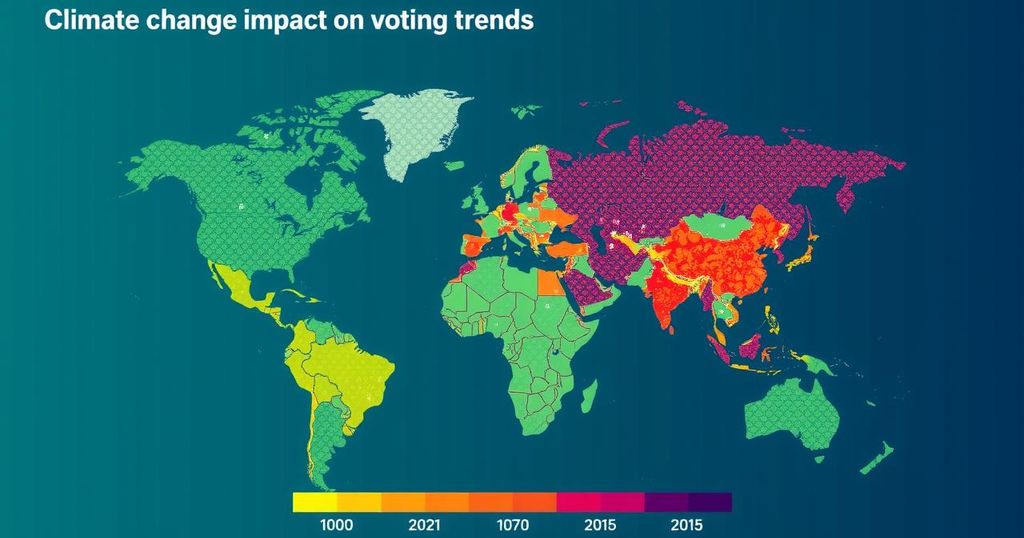Climate change
BRAZIL, CLIMATE, CLIMATE CHANGE, CLIMATE JUSTICE, COLORADO, DAVIS, ENVIRONMENTAL POLICY, GREENHOUSE GAS EMISSIONS, HAMILTON, HELENE, IDAHO, KUNR, LAWRENCE HAMILTON, MILTON, MOUNTAIN WEST NEWS BUREAU, NEVADA PUBLIC RADIO, NORTH AMERICA, SOUTH AMERICA, UNITED STATES, UNIVERSITY OF NEW HAMPSHIRE, WYOMING PUBLIC MEDIA
Marcus Li
0 Comments
Impact of Climate Change Awareness on U.S. Voter Behavior: Insights from Recent Research
Research indicates climate-related disasters are unlikely to influence U.S. elections as misinformation and political identity issues dominate public perception. Younger voters show more concern over climate change, which may increase its electoral significance in the future.
Recent research conducted by Lawrence Hamilton, a scholar at the University of New Hampshire specializing in public perceptions of climate change, indicates that climate-related disasters are not significantly influencing voter behavior in the United States. While awareness of climate issues had been on the rise, this momentum has diminished following the COVID-19 pandemic, which has coincided with an increase in conspiracy theories surrounding science and government. Hamilton notes that the proliferation of misinformation plays a critical role in the fact that events like hurricanes Helene and Milton, as well as the Davis Fire, fail to alter electoral outcomes during crucial voting seasons. Alongside misinformation, Hamilton points out that the politicization of climate change has become deeply intertwined with personal identity. This phenomenon is particularly evident among voters aged 30 and above where certain political stances, such as the denial of climate science, are closely linked to their self-perception. In contrast, individuals in their twenties exhibit a greater willingness to reconsider their views. Notably, younger generations show a stronger tendency to attribute climate change to human activity and express greater concern over environmental disasters. Consequently, it is anticipated that climate issues may increasingly influence electoral decisions in the future, particularly across the Mountain West region.
The topic of climate change continues to be a pivotal issue within American political discourse. Despite a growing awareness in previous years, the post-pandemic landscape has been marked by a spike in misinformation and conspiracy narratives that have muddied public perception. Lawrence Hamilton’s research delves deep into these challenges, revealing how entrenched political identities can overshadow scientific consensus on climate issues. Understanding these dynamics is crucial for grasping how environmental disasters impact electoral outcomes and public engagement going forward, especially among varying age demographics.
In summary, research by Lawrence Hamilton reveals that climate change and related disasters are not currently swaying voter behavior in the U.S., largely due to misinformation and the entrenchment of political identities. While older voters may resist changing their views, younger generations are increasingly concerned about climate change. Thus, there is potential for climate issues to gain more electoral significance in the future, especially in light of demographic shifts and changing voter attitudes.
Original Source: www.kanw.com




Post Comment